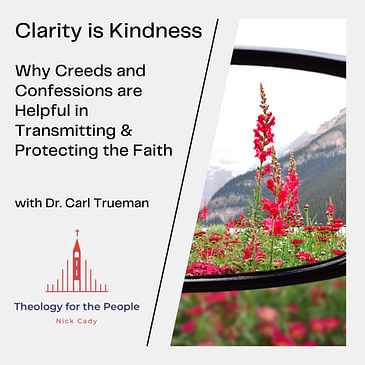What role should creeds and confessions play in the life of a Christian or of a church? If we have the Bible, then why are creeds and confessions necessary at all?
Dr. Carl Trueman is the professor of biblical and religious studies at Grove City College. He is an esteemed church historian, and a fellow at the Ethics and Public Policy Center.
Dr. Trueman’s recent book Crisis of Confidence: Reclaiming the Historic Faith in a Culture Consumed with Individualism and Identity addresses the claim that we, as Christians, need no creed but the Bible, and makes an appeal from history, reason, and Scripture for what he calls “confessional evangelicalism.”
Visit the Theology for the People website at nickcady.org





